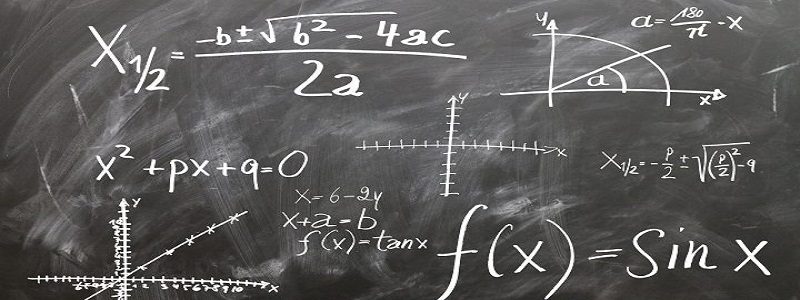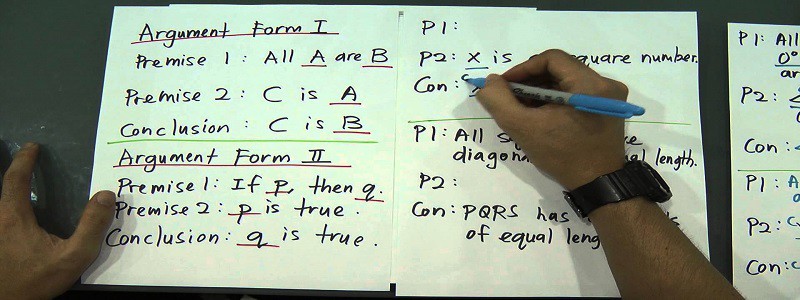Putting More Debate in the Presidential Debates
Last week, Republican consigliere and frequent electoral debate negotiator Ben Ginsburg appeared on Bloomberg News’ “With All Due Respect,” with John Heilemann and Mark Halperin, to discuss the effort that he led to take debate negotiations with the networks out of the hands of the Republican National Committee. Several candidates were unhappy, as everyone knows by now, about the moderators’ performance during the CNBC Republican Presidential Debate on October 28th. The conversation on WADR turned to the Annenberg Debate Reform Working Group, of which Mr. Ginsburg is a member.
Formed by the Annenberg Public Policy Center of the University of Pennsylvania, and its highly esteemed director Kathleen Hall Jamieson, the Working Group put out a set of 50-page report over the summer with recommendations designed to close the gap between the presidential debates’ civic promise and their increasingly spectacle-ized and infotainment-centered condition.
New ACE Poster Out: ‘How to Argumentalize Instruction’
‘The Five Steps to Argumentalizing Instruction’ has been posterized and is now available for hanging in classrooms, school hallways, education offices, teachers’ workrooms, and wherever good pedagogy is valued and on display.
The poster distills our approach to argumentalizing curriculum and teaching implementation, across disciplines, into five basic moves, beginning with determining the debatable issue or problem and ending with applying argument-based assessment criteria consistently.
To order posters for your classrooms or offices, go to our Products page — or contact our office — info@argumentcenterededucation.com or 312-646-2180.
Algebraic Number Sequences and Series, and Types of Argumentative Reasoning
Mathematics and Argument
Mathematics education has over the past 15 years increasingly elevated argumentation. The National Council of the Teachers of Mathematics established five ‘process standards’ for mathematical proficiency, and two of them (40%) are closely connected to argument: ‘reasoning and proof’ and ‘communications.’ As part of mathematical ‘reasoning and proof,’ students must be able to:
-
-
- ‘Develop and evaluate mathematical arguments and proofs’
- ‘Select and use various types of reasoning and proofs’
-
As part of mathematical ‘communications,’ students must be able to:
-
-
- ‘Analyze and evaluate the mathematical thinking and strategies of others’
- ‘Explanations should include mathematical arguments and rationales, not just procedural descriptions or summaries’
-
The Common Core Standards took mathematical argument – ‘a line of reasoning that intends to show or explain why a mathematical result is true,’ according to the Encyclopedia of Mathematics Education (Springer Media, 2014) – a step further when in their Standards of Math Practice 3 they require that students demonstrate a proficient ability to ‘construct viable arguments and critique the reasoning of others.’
Deductive vs. Inductive Arguments
The algebraic number sequences and series unit gives us an opportunity to investigate differences in the basic ‘types of reasoning’ recognized by authorities in argument education. One fundamental dichotomy in the field separates deductive arguments and inductive arguments.
Go Big on Argument
by Dave Stuart Jr.
When I tell students and parents that we’ll be arguing a lot this year, I quickly need to stress that the kind of argument I’m talking about is beautiful. It is deep, critical, collaborative cognition. I pray all my students – and all humans, really — become adept at it because it makes us better people.
If any of that seems strong to you, it’s likely because you and I carry different definitions of “argument” in our heads. In Teaching the Argument in Writing, Richard Fulkerson puts it in a way that has stuck with me:
The goal [of argument] is not victory but a good decision, one in which all arguers are at risk of needing to alter their views, one in which a participant takes seriously and fairly the views different from his or her own.
In other words, argument allows us to:
- make better decisions and
- practice virtues like open-mindedness (“takes seriously”), fairness, and humility (“at risk of needing to alter their views”).
Argumentation and the Elevation of Thinking and Reasoning in Mathematics Education
As part of a periodic series in The Debatifier on argument and math, today’s post backs up a step from Conor Cameron’s previous post on ‘Sometimes, Always, Never’ questioning in Algebra as a form of argument-making, and examines the broad and now well-established move in K-12 mathematics education toward thinking and reasoning skills at the base of mathematical formulas, procedures, and algorithms. The clear implication of this pedagogical direction is that students should be regularly engaging in argumentation in the classroom, as the articulation and performance of this thinking and reasoning.
Mathematics is constructed on a foundation of logical reasoning, and the National Council of the Teachers of Mathematics (NCTM) has been calling for an elevation of reasoning and argumentation in math education since at least 2000. Formal logic and the mathematical proof share an origin story, and the most influential figure in argument studies over the past 60 years, Stephen Toulmin (creator of the ‘Claim – Data/Evidence – Warrant/Reasoning’ argument model), had as his primary objective to expand the role and influence of informal logic.






